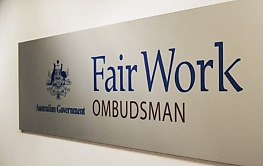
Many factors have shifted the world of hiring. Talent acquisition teams have gone through significant change in the last few years, with the pandemic, talent shortages, and the rise of artificial intelligence (AI) all playing a part.
Many of these troubles have seen these teams reduced, and caused increased pressures on those who remain, said SmartRecruiters’ Asia-Pacific vice-president, Rich Lewis-Jones.
“At the start of the pandemic, talent teams were stripped out from a people perspective. The first thing that the C-suite was starting to do was to look at the operating expenditure and capital expenditure of talent acquisition teams and who they’re connected to, so HR and IT,” said Mr Lewis-Jones.
“Unfortunately, it’s not just the technology stacks or lack of that were impacted by that, but obviously the talent teams were shrunk down. Talent coordinators were made redundant because they weren’t hiring as many people, so they didn’t need people to organise as many interviews. They didn’t need sources. So interestedly enough, those teams shrunk.”
This was just the beginning, said Mr Lewis-Jones. What followed the impacts of COVID-19 was economic downturn and talent shortages. With the teams suddenly being required again, many organisations turned to technology to save them.
“What businesses are realising is that there is technology out there that they can invest in that could subsequently drive faster effectiveness, be more accurate, mitigate risk on certain areas of the hiring process, even down to simple things like interview coordination,” he explained.
“We’ve seen businesses go from having teams of six talent coordinators to only needing one because there is now an automated AI tool that will help you schedule interviews and speak to candidates and do it en masse.”
The rise in recruitment software and AI capabilities has resulted in the massive downscaling of talent teams. This is the unfortunate reality of tech evolution. There are opportunities to come from this, however, as tech-related jobs become more in demand.
Mr Lewis-Jones continued: “We’ve got customers in our world with SmartRecruiters that have scaled their business from 1,000 to 6,000 staff without having to even hire a single other person in talent acquisition, so using AI and automation to their advantage.”
“The reality is, as harsh as this might sound, for every four or five talent coordinators or talent acquisition managers that you might be hiring, these tools can be so much more cost-effective to a business, and businesses are looking at that.”
Businesses can do their part to ease the stress that workers may be feeling and boost their workforce’s capabilities by investing in upskilling and reskilling.
“Rather than make those people redundant, move them onto more meaningful projects. So, go and ask a talent coordinator, do they enjoy what they’re doing? Do you enjoy monotonously organising administrative tasks and organising interviews day in, day out? And I guarantee you that 90 per cent of them would say no because it is a time suck,” he said.
“People want meaningful work. And I think if you’re able to bring in technology that can actually enable, so it’s not a replacer. Technology is not a replacer of people; it is an enabler. So, you can take that talent coordination level, bring in tools and technology that will make one person more effective or a business more effective.”
The transcript of this podcast episode, when quoted above, was slightly edited for publishing purposes. The full audio conversation with Rich Lewis-Jones on 31 May is below, and the original podcast article can be found here.
RELATED TERMS
The practice of actively seeking, locating, and employing people for a certain position or career in a corporation is known as recruitment.
Jack Campbell
Jack is the editor at HR Leader.











